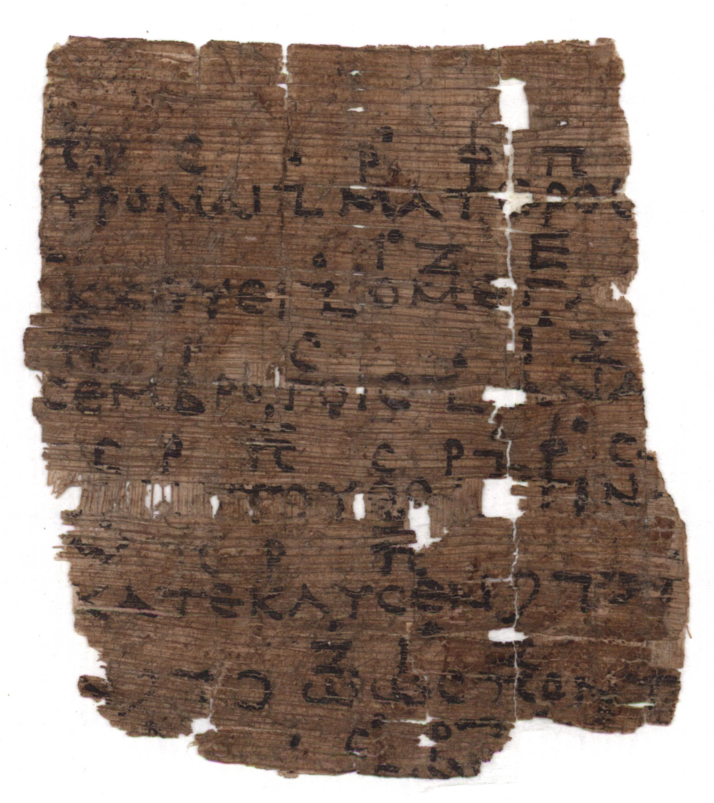Orestes by Euripides
Greek, 3rd/2nd cent. BC, papyrus
G 02315
Euripides is one of the most famous Greek tragedians. He lived in the 5th century BC. 18 of his works are still preserved today through copies. These include the plays Medea, Iphigenia on Aulis, Electra and Orestes. His tragedies were already very popular in antiquity.
The action of the tragedy takes place directly after the Trojan War. After the murder of his mother - Orestes and his sister thus avenged their father, who was murdered by their own mother - Orestes and his sister Electra are put on trial. A death sentence awaits both of them. Despite their pleas, their uncle Menelaos does not come to their aid. So Orestes takes his daughter hostage. At the last moment, the god Apollo appears, prevents another bloodbath and prophesies Orestes an acquittal in court.
The Viennese papyrus fragment is not only a text excerpt from the 1st choral song of the tragedy Orestes. Above the text are additional notes for the singers. At the end of the text lines there are also chords for the instrumental interlude. The individual notes are represented by letters of the Greek alphabet. Due to its early date of origin, this fragment is one of the oldest examples of musical notation in the world.
There is an extensive media station for this object in the Papyrus Museum, where you can also listen to an interpretation of the notation handed down on the papyrus. Of course, much is still left to interpretation. You can also find some interpretations of our papyrus by music enthusiasts and musicians on the internet.
You will find further information and a digital image in our database.
There is a media station on this object in the Papyrus Museum.
This object is so important that it also has its own Wikipedia entry.

